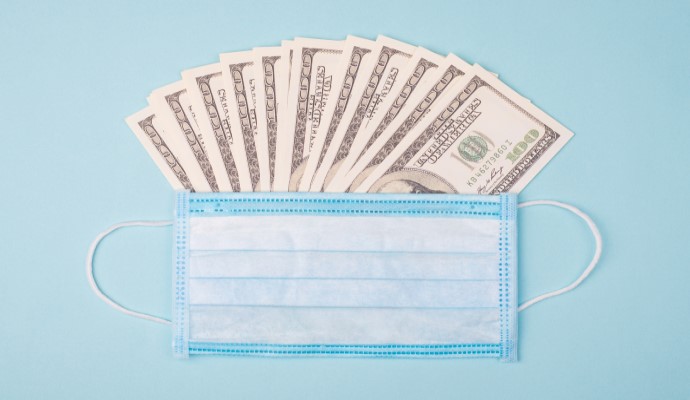Limited Reimbursement Paid Out for Uninsured COVID-19 Treatment
With funding contingent on the Provider Relief Fund, a COVID-19 treatment reimbursement program for uninsured patients has a small reach, KFF reported.

Source: Getty Images
- A program designed to offset the costs of uninsured COVID-19 patients during the public health emergency has paid out limited reimbursement to providers, according to a recent report from the Kaiser Family Foundation (KFF).
The Trump Administration announced the COVID-19 treatment reimbursement program for uninsured patients in early April. The program has been in place for about five months, using funds from the Coronavirus Aid, Relief, and Economic Security (CARES) Act’s $175 billion Provider Relief Fund to reimburse providers for treating uninsured patients with COVID-19.
One of the factors limiting reimbursement to providers for the treatment of uninsured COVID-19 patients is a newer policy that makes reimbursement contingent upon a primary diagnosis of COVID-19, the report stated.
“In some cases, patients with COVID-19 who are being treated for symptoms brought on by the virus may not have a primary diagnosis of COVID-19,” KFF wrote in the report.
Leading hospital groups including the American Hospital Association (AHA) and the Federation of American Hospitals (FAH) have particularly expressed concerns about the policy for patients with sepsis caused by the virus.
Additionally, coding protocols state that these patients are coded with sepsis as their primary diagnosis and not COVID-19, the report stated.
Other factors listed in the report as limiting the reach of the COVID-19 treatment reimbursement program is that providers can choose not to participate, leaving patients to foot the bill at the hospital’s list price for care, and that the program is contingent on what is left in the Provider Relief Fund.
According to the latest announcement from HHS, the Provider Relief Fund has already distributed nearly $144 billion to providers since its establishment in March 2020.
That leaves about $31 billion left in the Provider Relief Fund without additional allocations from Congress, the report stated.
HHS, however, has not indicated how much it has or will hold to for reimbursement to providers treating uninsured COVID-19 patients.
Researchers estimated that hospital costs alone for the treatment of uninsured COVID-19 patients could be as much as $42 billion depending on the number of people who become infected with the virus and are admitted to the hospital for care.
Publicly available data from HHS showed that the department has paid about $992 million in reimbursements for the treatment of uninsured COVID-19 patients as of October 8, 2020.
The department has also paid out nearly $526 million for COVID-19 testing of uninsured patients, according to the data.
The program has promised to reimburse hospital costs, as well as other services, including office visits (including telehealth), non-emergency transportation, and for post-acute care. Providers are paid at Medicare rates and cannot balance bill uninsured patients for care related to the treatment of the virus.
The limited reach of the program raises concerns, KFF stated.
“The reimbursement program is, by design, different from policy approaches that would instead promote access to affordable health coverage, which would provide broader protections for people who are uninsured or at risk of becoming uninsured,” the group stated in the report.
Policy options that would provide better protection to insurance coverage include subsidizing COBRA so that people can afford to maintain employer-sponsored coverage after an employment disruption, increasing Medicaid coverage, and creating a new open enrollment period for marketplace coverage and potentially increasing subsidies to make that coverage more affordable.
“Policy options that enable people to afford and enroll in comprehensive health insurance would help them access care for all their health care needs, including possible COVID-19 testing and treatment, although these policies would likely increase government spending,” KFF said.
As many as 7.7 million workers had lost jobs with employer-sponsored insurance because of the COVID-19 pandemic as of June 2020, according to a recent report from the Commonwealth Fund. The health plans had also covered 6.9 million dependents.
A significant portion of these people could become uninsured permanently if employers decide to lay off workers permanently, researchers warned.
